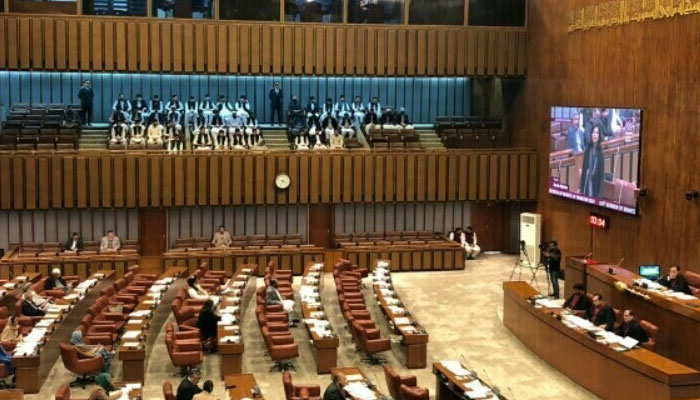Divided Opinions on Reproductive Health Education in Pakistan’s Curriculum
A significant debate unfolded within the Senate Standing Committee on Education in Islamabad, as members grappled with the inclusion of reproductive health education in Pakistan’s national school curriculum. The discussion, led by Senator Bushra Anjum Butt, aimed to assess potential updates to the educational framework, but it quickly highlighted deep ideological divides among committee members.
Tolong support kita ya,
Cukup klik ini aja: https://indonesiacrowd.com/support-bonus/
Senator Quratulain Marri introduced a proposal to incorporate age-appropriate reproductive health content into the school syllabus. She emphasized the importance of equipping students, particularly girls, with accurate knowledge as they transition into adolescence. “It is crucial that young people receive reliable information from trusted sources rather than relying on the internet, where misinformation is rampant,” she stated. Marri argued that early education on reproductive health could help address harmful practices, reduce stigma, and promote healthier attitudes toward relationships and personal development.
Her proposal, however, faced strong opposition from several senators who raised concerns about the appropriateness of introducing such topics at an early stage. Senator Fauzia Arshad expressed reservations, suggesting that discussions on human reproduction should not be part of the lower grade curriculum. “This is a sensitive issue, and parents should have the right to decide whether their children are exposed to such content,” she said. Arshad referenced the United States, where parental consent is typically required before teaching similar subjects.
Senator Khalida Ateeb echoed these concerns, warning against exposing young children to complex topics that may be beyond their developmental readiness. “Children are naturally curious, but we must ensure that we do not overwhelm them with information that is not suitable for their age,” she said. Ateeb suggested that the topic might be reconsidered at a higher educational level, provided it undergoes thorough review and approval.
Support us — there's a special gift for you.
Click here: https://indonesiacrowd.com/support-bonus/
Other senators took a more direct stance. Senator Kamran Murtaza and Senator Gurdeep Singh firmly rejected the proposal, arguing that it conflicted with cultural and religious values. They maintained that such content should not be included in the formal curriculum, citing the need to preserve traditional norms and community expectations.
Despite the heated exchange, no definitive decision was reached during the session. The committee agreed to conduct further research and consultation, likely involving input from education experts, religious leaders, and health professionals. This process aims to strike a balance between modern educational needs and the country’s deeply rooted traditions.
The debate underscores the broader challenges facing Pakistan as it seeks to modernize its education system while respecting the diverse cultural and religious perspectives of its population. The outcome of this discussion will likely influence future policies on curriculum development and shape the way reproductive health is addressed in schools across the country.







